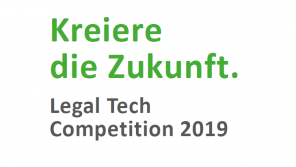The Harvard Business Review has just identified “blockchains” as one of their eight top technology trends to watch out for in 2016, concluding that they “will disrupt entire industries”.
This is a key area of innovation that will become increasingly relevant for business lawyers in 2016. You only have to invest a few minutes in some Google research and you can soon discover how seriously blockchain innovation is now being taken by technology firms, entrepreneurs, legal academics and major financial institutions around the world.
“The blockchain will be to banking, law, and accountancy as the internet was to media, commerce, and advertising. It will lower costs, disintermediate many layers of business and reduce friction”
– Joichi Ito, Director at MIT & early investor in Flickr and Twitter
I first stumbled across the concepts of blockchain and smart contracts a couple of years ago whilst undertaking research for my MBA. I was interested by how much of the logic derives from legal theory, especially contract law. I was also struck by how these innovations could quickly become relevant to the wider legal profession.
Since then, I’ve continued to follow developments in this area, even investing in a couple of projects (such as the Ethereum pre-sale/crowd-fund). Attending a few events, I’ve also met people from a range of professional backgrounds, all of whom were equally excited and convinced about the potential for this technology.
This post starts out with a quick look at what blockchains are. If you are familiar with the blockchain concept, you could happily skip this part. The post then discusses a few implications of blockchains, with the focus being those developments most of relevance or interest for business lawyers. To finish, there are a couple of ideas for further reading to learn more.
Blockchains – what are they?
Blockchains started to enter the public consciousness via their connection to Bitcoin. Bitcoin is a digital currency, which marked the initial use of the blockchain concept. However, the innovation and potential for blockchain extend far beyond that one application.
Blockchains act as massive, decentralised, computerised ledgers. They are open source and shared; not owned or controlled by anybody. Users of a blockchain can enter into a transaction, such as a transfer of value or information. That transaction will be represented by a unique address (known as a “hash”), which is then added to the constantly growing blockchain.
The blockchain is also immutable: the transaction is recorded for all time and cannot be altered by third parties. Provided you know the address, anybody (or any computer) can use the blockchain to verify their transaction. This allows you, for example, to confirm or transfer the ownership of an asset, or set contractual obligations or conditions (such as “if X happens, then Y automatically will happen”).
The core innovations of blockchain technology lie in the principles of decentralisation and trust. Usually, when we enter into a transaction with a stranger, we “trust” in that transaction, because we know we ultimately have recourse to that jurisdiction’s legal system. Similarly, we might “trust” an intermediary, such as a bank, as part of conducting a financial transaction. In each case, we have confidence in dealing with a stranger because of the trust we put in the operation of centralised institutions.
By providing a decentralised ledger, blockchains allow parties to engage in “trustless” transactions, reducing their reliance on such centralised intermediaries.
“For the first time, a way for one Internet user to transfer a unique piece of digital property to another Internet user, such that the transfer is guaranteed to be safe and secure, everyone knows that the transfer has taken place, and nobody can challenge the legitimacy of the transfer. The consequences of this breakthrough are hard to overstate.”
– Marc Andreessen, inventor of the internet browser
Blockchains also act as a platform, upon which future applications can be built. These deliver a more user-friendly experience, without the user even having to know that a blockchain is being used. These applications can check against the blockchain to get independent verification of the relevant information, then present it back to the user – via their computer or smartphone.
Why do blockchains matter so much for lawyers?
If, as a lawyer, you want to understand why it might be useful to be familiar with blockchain technology, let sink in the following statement:
Blockchains can be used to replace anything that needs authentication or a signature.
As was the case with the introduction of the Internet, blockchains have the potential to develop as a pervasive, rapidly evolving and highly disruptive technology. Also, as was the case with the Internet, nobody knows exactly yet where, or how much, change might occur. Change may not be equal or universal, but change there will be.
As lawyers, we will likely see developments on a number of fronts:
- Clients are going to be increasingly deploying blockchains in their businesses. To continue to provide relevant advice, lawyers will need to understand the technology, its benefits and risks and also how their clients’ operations might be impacted by existing laws or regulations.
- Lawyers will need to contribute to the debate about new laws or regulations that impact their clients’ use of blockchains. For example, here in Australia, a regulatory decision to treat Bitcoin as being subject to GST led to a number of fintech start-ups re-locating to the UK. Regulators such as ASIC have already begun to engage on the implications of this technology.
- Accepting the premise that blockchains have the potential to transform or disrupt whole industries: some client enterprises are going to shrink or disappear; others are yet to be created.
- Focusing on the legal industry itself, some use cases for blockchains have the potential to transform, or make redundant, whole areas of existing legal administration, processes or structures.
- The conduct of transactions via blockchain has the potential to change the way that lawyers have to think about fundamental legal concepts, such as “trust”, the nature of contracts and corporate governance.
A number of law faculties around the world are actively engaged in research on these topics and the implications of blockchain technology. For example, in Sydney, UTS has just hosted a conference to explore these topics.
The rest of this post looks at a few of the developing practical uses of blockchains that are of interest or relevance to lawyers.
Smart contracts
For lawyers, the first thing to recognise about “smart contracts” is that they are not contracts at all, in the “legally binding agreement” sense. The best way to think of a smart contract is as a software tool that replaces part or all of a contract, or replaces a specific phase of the contracting lifecycle.
Wikipedia provides the following useful definition:
Smart contracts are computer protocols that facilitate, verify, or enforce the negotiation or performance of a contract, or that obviate the need for a contractual clause.
Smart contracts are already widely used. Take, for example, Digital Rights Management (DRM). When we buy and download a song from iTunes, we have a contract with Apple. It is a copyright licence, as set out in their T&Cs. One term of that particular contract is that we receive a limited licence, only to use that song on a specified number of devices. If you try to breach this licence, you will find that the software blocks your attempt. In this case, a computer protocol is enforcing the performance of a specific contract term. That protocol is a “smart contract”.
Blockchains allow further development of the smart contract concept. Parties can deploy their smart contracts on a blockchain. That “smart contract” may well represent the whole of their “legal agreement”. It may equally be just a part of their agreement, or it may be one step in the overall contract process. By being on the blockchain, all terms are transparent, cannot be altered and enforcement can be made automatic.
Decentralised autonomous organisations
The concept of a Decentralised Autonomous Organisation (or “DAO”) takes the smart contract a step further. It recognises that any organisation – whether local football clubs, residents’ committees, not-for-profits, entrepreneurs working on a start-up, public companies – can be subject to governance rules.
The idea of a DAO is that all the familiar rules of governance (quorum, casting votes, matters for unanimous consent, notice periods and so on) can be codified, programmed on to a blockchain and made to operate autonomously.
A local football club might use a simple app to program its committee rules on to the blockchain. A member of the committee puts forward a proposal: an online booking will be made for a particular football pitch, at 5.30pm on Wednesdays, for the next four weeks, with the fee to be paid out of the club account. All committee members receive a notification to their phone. They vote for or against the proposal. Once the necessary majority is reached, all members are notified, the booking is automatically executed, the funds are transferred and the club’s Facebook page is updated to confirm next week’s match venue. The vote process is secure, transparent, immutable and easily integrated with the club’s other online activities.
Transposed into a corporate environment, this would be the shareholders or directors agreeing to a particular resolution, with the protocol rules reflecting the company’s Constitution. Anybody who has experienced the difficulty of coordinating signature of a circulating resolution should see this as an area ripe for innovation!
In fact, there are already governance apps available for use (such as “Boardroom”), that aim to replicate all of the rules for an organisation and integrate them into a blockchain.
Banks, financial services and money remittance
If you need any indication of how seriously blockchain technology is being taken in some sectors, a good start is the investment being made by banks and financial institutions.
For example, the R3CEV project brings together 30 global, high-profile banks to work together on joint use of blockchain technology.
There are also a whole raft of businesses now seeking to use blockchain to make peer-to-peer money remittance more affordable, efficient and accessible and to extend financial services to the world’s unbanked population. This poses a direct challenge to incumbent operators like Western Union.
Notary and registry services
As a decentralised ledger, which cannot be altered by third parties, potential uses exist for blockchains for notarizing and certifying documents. Services, such as Block Notary, are becoming available. These allow a document to be given a unique digital identifier. This is uploaded to the blockchain, providing an independent timestamp. That identifier allows subsequent versions of the document to be independently verified as being the same as the original document, without the document needing to be shared.
Likewise, a blockchain is a natural home for any system that requires an independent, fraud-free register of asset ownership. Whilst this starts with digital assets, the idea extends to physical assets which can be represented by a digital “token”.
Supply chain transparency, IP and piracy
A range of supply chain and brand management issues are tied to being able to demonstrate a product’s chain of custody from manufacturer to customer. This might be the case in industries where counterfeiting is a problem. This is especially so, if the product is high value – such as fake pharmaceutical products or engineering parts. It might be also that a brand wants to guarantee ethical sourcing or its fair trade credentials.
Blockchain technologies are now being developed as a tool for these industries to confront this type of problem. For example, “Provenance” is an enterprise developing fascinating uses of blockchain technology to provide product traceability and proof of authenticity or origin.
Music and digital creative industries
Musicians have seen the revenue base of their industry shrunk by piracy and the move towards streaming services. As recorded music is now mostly a digital product, the blockchain is being seen as a potential distribution channel, providing opportunity for artists to secure their own product.
This article was originally published on LinkedIn by Michael Milnes and is re-published here with the permission of the author.
Michael Milnes is a corporate and commercial lawyer, based in Sydney, Australia. His work focuses on M&A, JVs, procurement, out-sourcing and commercial law advice. As an MBA student, his personal research includes the role of blockchain technology, especially in the e-commerce, FMCG and supply chain sectors.




